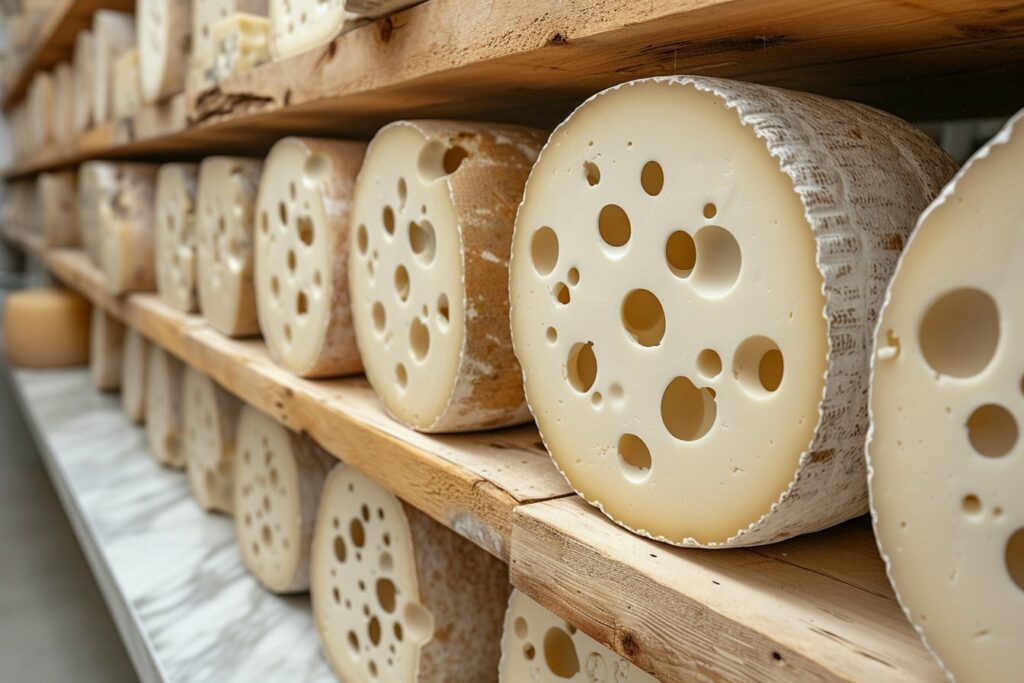Cheese is a versatile and delicious addition to many meals, but have you ever wondered what cheese has the most protein? Whether you’re a fitness enthusiast or simply looking to make healthier food choices, knowing which cheeses pack the most protein punch can be valuable information. In this article, we’ll dive into some of these high-protein options, as well as learn about their nutritional properties.
The Role of Protein in Our Diets
First and foremost, it’s essential to understand why protein plays such an important part in our diets. This nutrient serves as a building block for the body’s cells, tissues, and organs, playing a critical role in muscle growth, immune function, and overall good health. For this reason, many people prioritize consuming adequate amounts of protein daily.
The Recommended Daily Allowance of Protein
According to the National Academy of Medicine, the recommended daily allowance (RDA) of protein for adults varies by age and gender. Women aged 19-70 should consume approximately 46 grams of protein per day, while men of the same age group should aim for around 56 grams. However, individual needs may differ based on factors such as activity level and lifestyle.
High-Protein Cheese Options
With countless varieties of cheese available, it can be challenging to determine which types offer the highest protein content. To help you make informed decisions, let’s examine five popular kinds of cheese known for their superior protein levels.
1. Swiss Cheese
Swiss cheese is a classic favorite with its distinctive holes and mild flavor. Not only does it taste great, but it also boasts high protein levels. One ounce (28 grams) of Swiss cheese contains approximately 7.8 grams of protein. This makes it an excellent choice for sandwiches, fondue, or simply enjoying on its own.
2. Cheddar Cheese
Originating from the English village of Cheddar, this popular cheese has become a staple in many households worldwide. Its firm texture and sharp flavor make it suitable for various uses, such as grating onto nachos or melting into macaroni and cheese. An ounce serving of cheddar cheese typically provides around 6.5 grams of protein.
3. Mozzarella Cheese
Often associated with pizza and lasagna, mozzarella cheese is a versatile option that can be used in both sweet and savory dishes. From caprese salads to stuffed mushrooms, mozzarella’s soft, stretchy texture lends itself well to numerous culinary applications. A one-ounce serving of this Italian favorite offers approximately 6.3 grams of protein, making it a delicious way to support your protein needs.
4. Gouda Cheese
Gouda, originating from the Dutch town of the same name, is a semi-hard cheese renowned for its rich, buttery flavor. With its pleasant taste and smooth consistency, Gouda can be enjoyed on its own or added to sandwiches, pasta dishes, and more. One ounce of Gouda cheese packs about 7.1 grams of protein, contributing to your daily intake.
5. Cottage Cheese
Although cottage cheese differs significantly in texture and taste compared to other cheese varieties, it’s a top choice for anyone prioritizing protein intake. This creamy and slightly tangy cheese is often eaten as a snack with fruit or used as a replacement for higher-calorie ingredients in recipes. A 4-ounce serving of cottage cheese contains an impressive 12.5 grams of protein, making it a popular option among athletes and fitness enthusiasts.
Comparing the Nutritional Profiles of High-Protein Cheeses
Beyond their protein content, these cheeses also vary in terms of calories, fat, and other nutritional aspects. To help you choose the best option for your individual dietary needs, let’s compare the nutritional profiles per one ounce (28 grams) serving size:
- Swiss Cheese: 106 calories, 7.8g protein, 7.9g fat, 1.8g carbs
- Cheddar Cheese: 114 calories, 6.5g protein, 9.4g fat, 0.4g carbs
- Mozzarella Cheese: 85 calories, 6.3g protein, 6.3g fat, 1.1g carbs
- Gouda Cheese: 101 calories, 7.1g protein, 7.8g fat, 0.6g carbs
- Cottage Cheese (4 oz./113g): 110 calories, 12.5g protein, 4.2g fat, 10.7g carbs
As seen from the above data, different high-protein cheeses contain varying amounts of calories, fat, and carbohydrates. It’s essential to consider these factors in addition to protein content when selecting the best cheese for you.
Final Thoughts
In conclusion, incorporating high-protein cheeses into your diet can help you meet your daily protein requirements while enjoying a tasty treat. Swiss, cheddar, mozzarella, Gouda, and cottage cheese are just a few examples of protein-rich options available at your local grocery store. Don’t hesitate to explore other cheese varieties as well – you might discover a new favorite that aligns with your nutritional goals.

